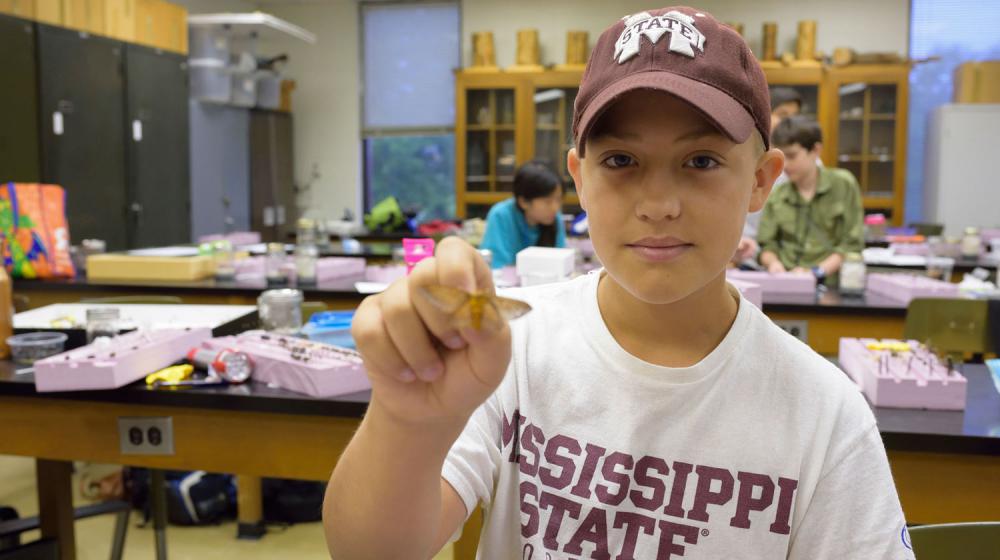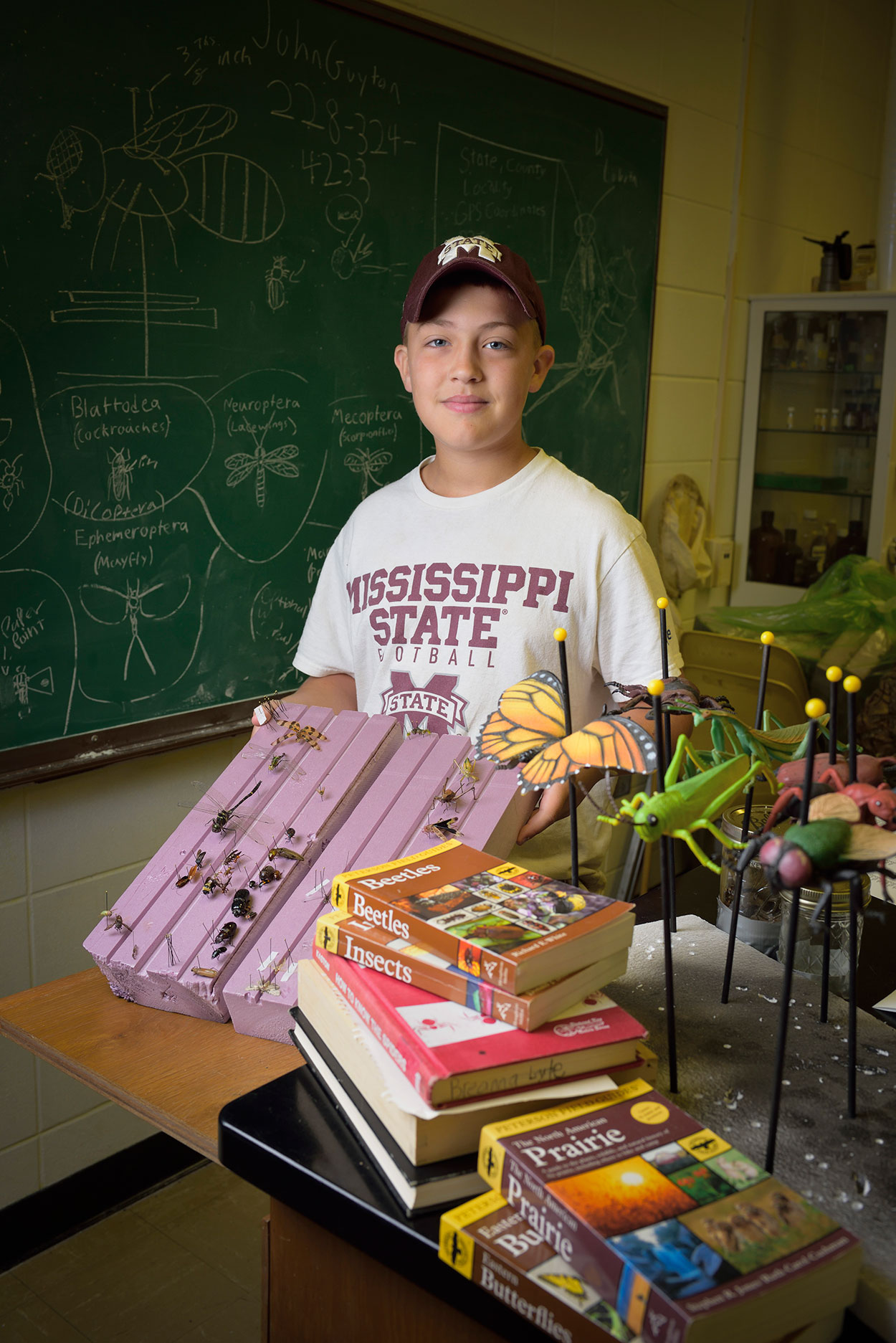Bright-Eyed and Buggy

4-H Bug Camp teaches young people entomology
Story by Leah Barbour • Photos by Kevin Hudson
“A lot of people see an insect, and they think, ‘kill it,’ but they’re actually really cool. You just have no idea how much insects can do.”
Ryals Strider
Bug Camp is not a place for kids who are afraid of bugs, warns Ryals Strider.
Ready to learn more about the six-legged creatures that scuttle across the earth, the 12-year-old sixth-grader from Tallahatchie County participated in Bug Camp, a Mississippi 4-H youth development program camp, for the second time in the summer of 2018.

“If you do not like insects and you’re not really an outside person, you’ll be scared to death and reapplying your bug spray every 10 minutes,” Ryals laughs. “I don’t reapply every 10 minutes, but applying is helpful. And when bugs drop from trees on top of your head, it can be kind of scary,” he concedes.
“But Bug Camp is really cool,” Ryals emphasizes. “Insects are not just what you think you see; they are very fascinating. You get a magnifying glass, and it’s really cool to see what its face looks like. It’s still kind of disgusting, but they actually do have pretty cool facial features.”
Ryals discovered entomology, the study of insects, at the young age of 5, when he received a book that introduced him to it. While he didn’t know that “entomology” means “the study of bugs” then, Ryals says it’s one of his favorite subjects now.
Getting to attend Bug Camp, based at the Mississippi State University Clay Lyle Entomology Building and delivered by the MSU Extension Service, is a special treat for Ryals, he says. Not only does he get to spend time with other young people who, like him, are interested in insects, but he also gets to collect bugs and use advanced equipment, like MSU’s scanning electron microscopes, to view them up-close and personal.
“There’s a lot of people here at Bug Camp that I know, that I became friends with last year,” Ryals says. “I have two friends here from the same town in Georgia, one from Alabama, one from South Carolina, and even one from Washington, D.C.
“We all realize that Mississippi State is the only place with Bug Camp, and it has one of the best entomology programs in the whole country.”
Ryals Strider
Bug Camp has been the only camp of its kind in the world since 1994, agrees Dr. John Guyton, Extension entomology specialist and Bug Camp organizer. The camp attracts participants from all over the United States, with several campers hailing from as far away as California.
The 4-day camp, which hosts approximately 25 participants ages 10 and up, characterizes 4-H-style learning by- doing by encouraging young people to engage in hands-on, interactive learning, Guyton emphasizes. For those who are interested in insects, Bug Camp offers a structured, safe environment to collect, pin, and preserve what they find. At the same time, the participants get to work with scientists and discover possible career paths.
Ryals says getting to stay in a real university dorm is fun, but staying up late to hunt insects in the night and pinning them at Clay Lyle each morning is even better.
“You hunt, you pin, and you eat,” he laughs. “We don’t really hunt on campus, but we go to refuges to hunt. If it’s tall grass, I use my sweep net and use it through the tops of the grass. If it’s something slow, I can probably grab it and put it in my kill jar. But if it stings, I’ve got to get it in the back of my net, make a bubble with the net, and slide my jar up in there.
“I’m always on insect- or spider-watch at the house. Sometimes, I’ll catch and keep it, and, other times, I’ll put it back outside,” Ryals continues.
Numerous former Bug Campers have continued their entomological studies into college, Guyton says. Many campers are members of the Entomological Society of America, and several have received national awards from the professional organization.
While Ryals has a few years to go before he decides his future career path, he’s planning to continue attending Bug Camp. He also volunteers at Extension’s Crosby Arboretum for Bug Fest, another hands-on opportunity sponsored by Extension that offers a day of collecting and identifying insects at the arboretum in Picayune.

